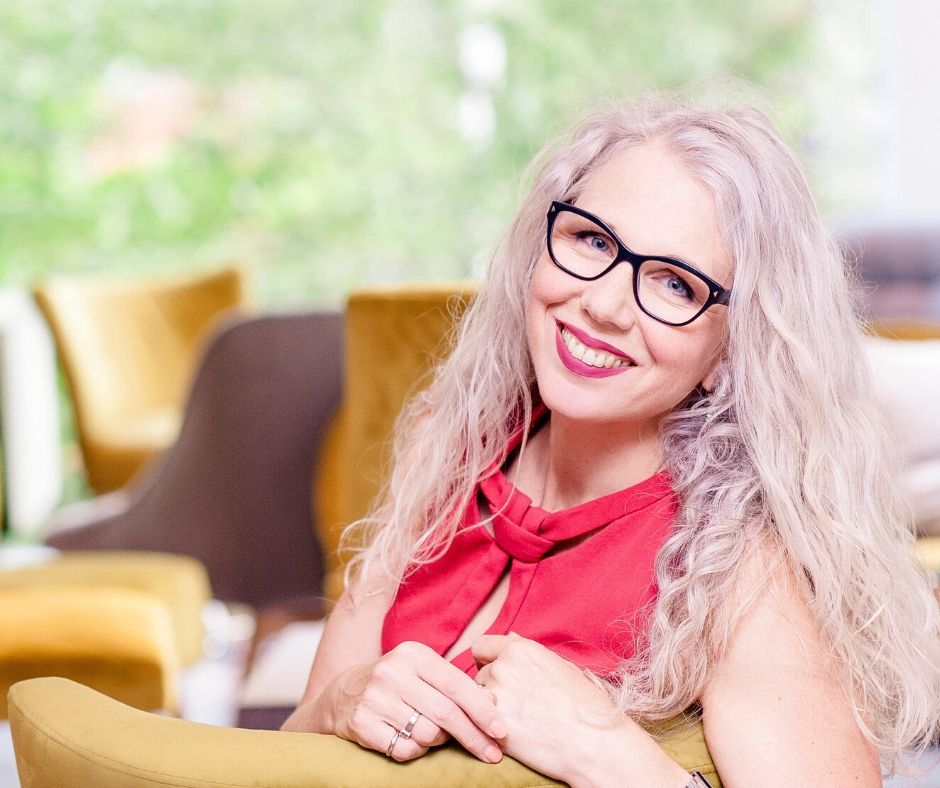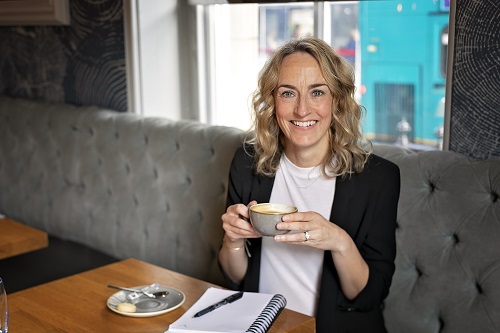
By Kate Usher, author of Your Second Phase (image above).
The Menopause is a phase of life that many women arrive at without any preparation or understanding of what is to come. They feel lost and disconnected with those around them, and with themselves. Many feel disbelief or betrayal at finding that they can no longer be as they were, whatever that was. It creates an all-pervasive sense of being adrift without control.
Some Facts And Figures
The average age of Menopause in the UK is 51 and the average age range to experience symptoms is from 45 to 55. 1% of women will have their Menopause before the age of 40.
The average duration is between four to eight years but it’s not uncommon for it to be longer. That is every day of those years. Menopause is an endurance event. Approximately three quarters of women will experience symptoms, with a quarter finding them utterly debilitating.
The list of symptoms is long, yet often the focus remains on hot flushes, weight gain and unpredictable periods. Unfortunately, depression, anxiety, panic attacks and memory loss are also extremely common and are only just starting to be more widely recognised and discussed. The degree of variability is considerable, and your Menopause experience is as unique as your fingerprint. Comparing our symptoms to those of others isn’t helpful to any of us.
The Depiction Of Menopausal Women
Yet Menopause is so much more than the sum of the symptoms, from every perspective.
Culturally we have traditionally depicted Menopausal women highly negatively. We still use pictures of women in their late 60’s to depict us rather than women in their 30’s, 40’s and 50’s.
When we talk about this phase the words we use are damning; old, stressed or mad to name some of the more acceptable versions. No wonder we fear what this phase will bring and who we will become. Many women don’t want to admit to being Menopausal and within this social context who can blame them?
This denial driven by fear denies women all important support from others and isolates them further, creating a negative downward spiral from which it can feel very difficult to surface.
But every woman will all have a Menopause. It is a fact of life.
It is time to view the Menopause differently – as a society, and more importantly, for ourselves.
The ‘Change’
The Menopause is a transition from the first to the second phase of our womanhood. It is a complex time when much about us is changing – it’s not called ‘the change’ for nothing.
In order for us to manage it successfully we will need to ensure we nurture and develop our relationships – with ourselves as well as others. We are not alone. By anchoring a clear vision of who we are about to become, it will enable us to draw others toward us and receive empathetic support. All of this will ensure we are ready for our second phase.
The Second Phase
The Menopause is both an end and a beginning. As such it is an amazing opportunity which is only afforded to women. We get the opportunity to reassess who we want to be in our second phase. This might sound like a very big ask, yet much about us is driving us to answer this question.
The changes in our hormones mean that we start to focus on our ambitions for our self.
Being clear about what we want our life to be at the other end of this, will draw us through the darker times of this transition like a beacon. Understanding who we are and who we might be is incredibly powerful. Recognising and harnessing our strengths and our abilities, even those that may have lain dormant for some time, is part of the process of reconnection with our self.
Our Bodies
Our Menopause is also a time when our body is asking us to reassess how we live, eat, drink, exercise and sleep. The latter is a major issue for many women at this time and would require an entire article on its own.
The manner in which we eat, drink and exercise is something we have the power to take immediate action over. Our body will start to change due to the drop in both oestrogen and progesterone. Many find that they put on notable amounts of weight. Increased weight does of course put us at risk of numerous cancers and diabetes.
Cutting down on alcohol consumption and increasing load-bearing exercise which includes, walking, running, dancing and skipping helps maintain our bone density and stave off osteoporosis. It also has the added and more immediate benefit of making us feel good about our self. This should not be underestimated.
The Connection With Our Self
Focusing on our self and who you want to be, nurturing our relationships in particular that with our self and looking after our well-being both physically and mentally, creates a purpose for us to focus on. And a positive environment in which we can proactively manage our symptoms, however they may appear.
Creating that all important connection with our self and giving our self some much needed control at this time is about recognising that we are changing. And that this is an opportunity and one that we can define.









Thank you for posting this! Despite the fact that I’m only 28, I think a lot about menopause. I anticipate an earlier onset of menopause from genetics, and I remember my mom having such a horrible time with it. She actually needed a hysterectomy because of bleeding issues, so I’m anticipating the same which would cut off my hormones rather abruptly! I’m really not into medicalized solutions for things, especially when it comes to hormones (I’ve sworn off “the pill”). So thank you for giving me some more options to think about over the coming years.
Thanks for helping me understand that there are a number of women who are going to experience the symptoms of menopause while some would experience more. I guess I would have to seek a doctor’s opinion as early as now to be prepared. I am turning 45 this year, and I might be near the menopausal stage. If there are treatments that can help such as hormone replacements that I need, then I would gladly have them done.